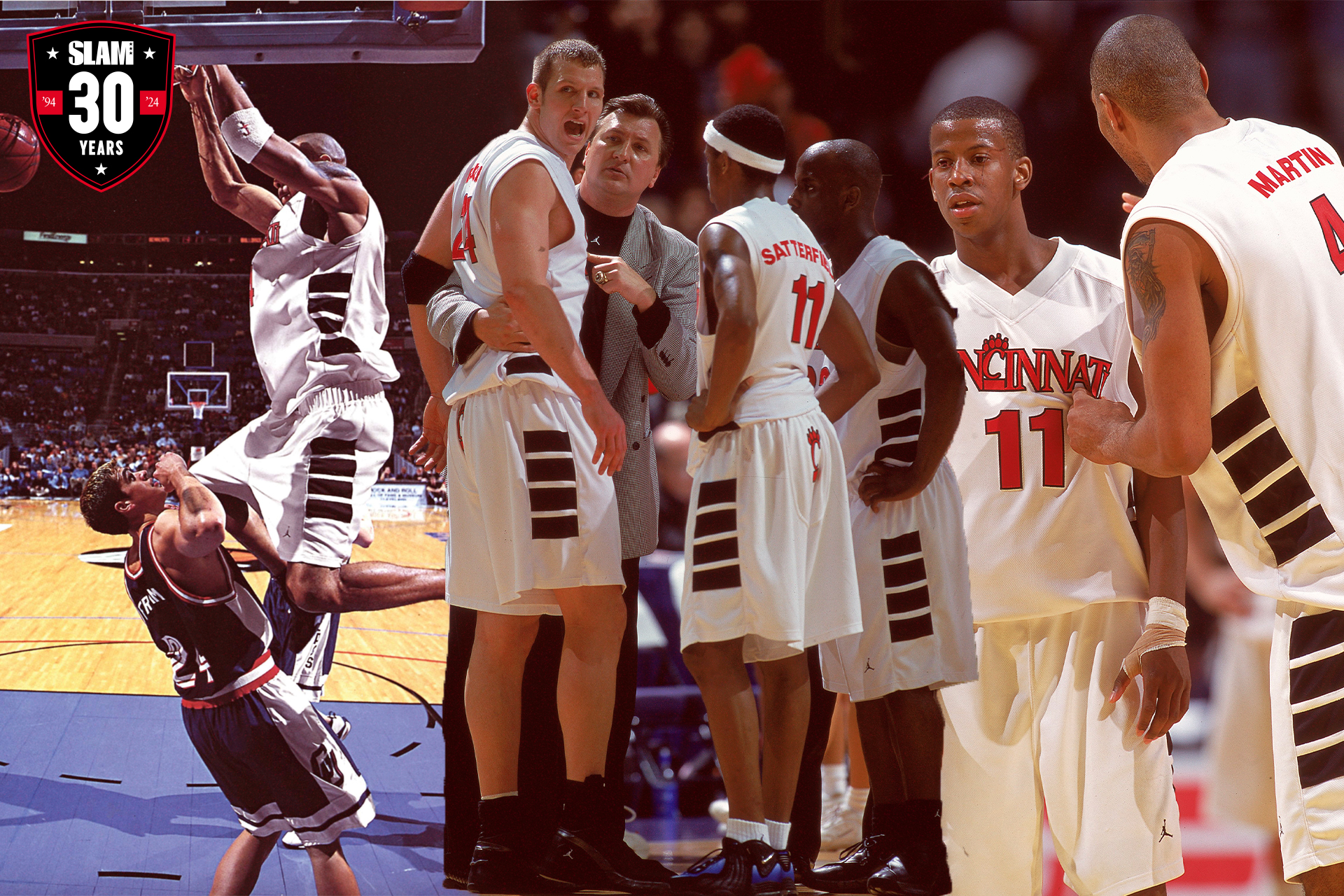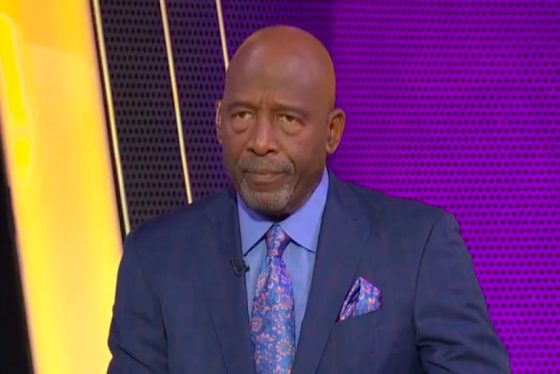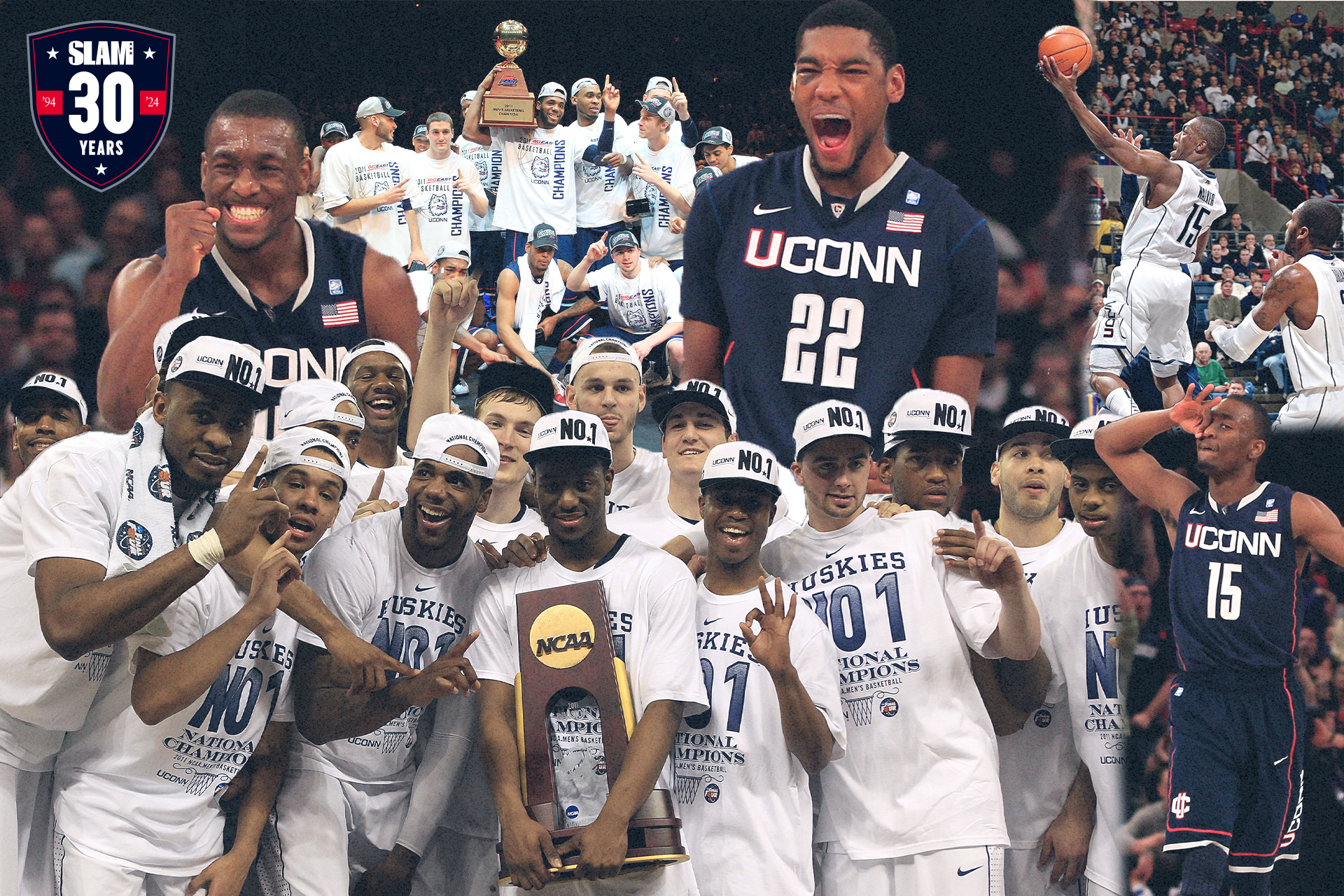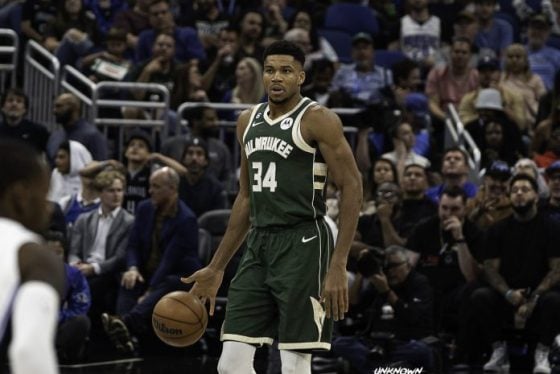To celebrate SLAM’s 30th anniversary, we’re spotlighting the 30 most influential men’s college teams from our past 30 years. Stats, records and chips aren’t the main factor here, it’s all about their contribution to the game’s cultural fabric.
For the next 30 days—Monday through Friday— we’ll be unveiling the full list here. We’ve also got an exclusive retro collegiate collection, out now, that pays homage to each squad’s threads. Shop here.
At the turn of the century, the Cincinnati Bearcats were the team that struck a perfect balance of old-school toughness and flash and flare.
Led by the legendary Bob Huggins, a coaching maestro famous for his relentless pursuit of excellence, the 1999-2000 Bearcats epitomized hard-nosed basketball. Huggins, a master tactician, instilled in his players a defensive prowess and a tangible thirst for victory.
Their mantra was simple: outwork, outlast, outplay. And they did so with ferocity, leaving opponents quaking in their kicks. But it wasn’t just their on-court prowess that captured the imagination of fans across the nation. It was the colorful cast of characters of this storied team. From the towering presence of Naismith Player of the Year Kenyon Martin to the sharpshooting finesse of DerMarr Johnson, the Bearcats boasted a roster brimming with talent and personality.
Martin and Johnson would eventually declare for the NBA draft. The New Jersey Nets picked Martin with the first pick, and Atlanta scooped Johnson with the sixth.
On the court, the dynamic duo and the rest of the team donned white and red jerseys that drooped below their knees, repping the fashion trends of the times with gusto. Stamped with the Bearcats’ iconic bear claw logo, headbands and ankle socks accompanied the team’s ensemble at the turn of the century. But it was the reserved allure of the Jumpman logo and the litany of Air Jordans that catapulted Cincinnati to cultural prominence. The Bearcats were one of just four programs to introduce Brand Jordan to the collegiate ecosystem. In their oversized jerseys, the players strutted, oozing confidence, reflecting the swagger and confidence of players who seemed destined for greatness.
And greatness they achieved.
With an impressive regular-season record of 29-4, including a Conference USA regular-season title, the Bearcats bulldozed their way through the competition, leaving a trail of defeated foes in their wake. The team’s toughest challenge would come near the end of the season when Martin broke his leg in the C-USA Tournament quarterfinal game against Saint Louis.
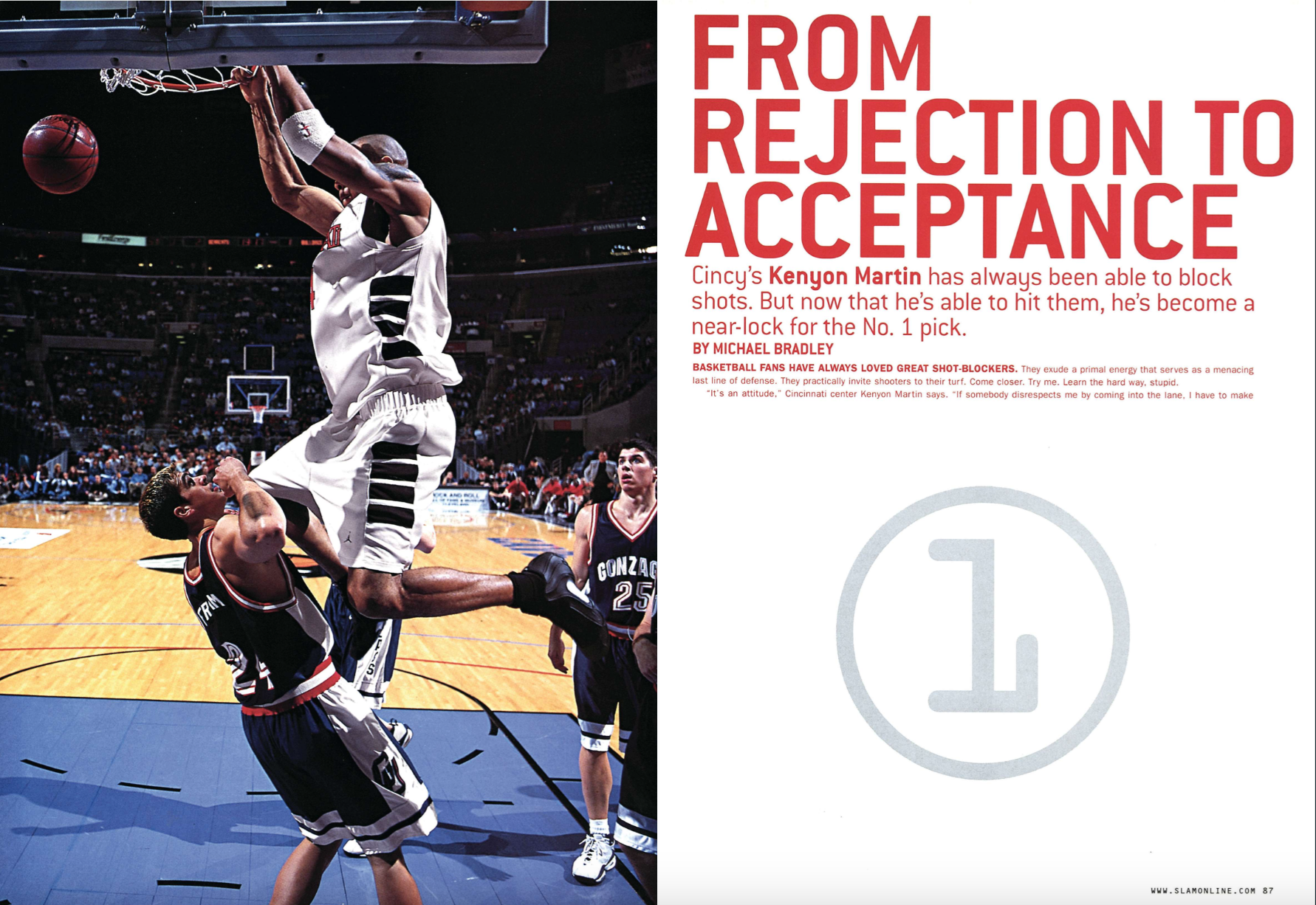
Despite the heartbreak of losing the nation’s then-biggest college phenomenon, the Bearcats rallied together, sending out a clear message: even without their top performer, the team has what it takes to give any team a run for its money. They marched into the NCAA Tournament as the second seed, still determined to reach the promised land.
The Bearcats stomped into the first round of the tournament, blowing out UNC Wilmington. Their championship hopes, however, would be cut short in heartbreaking fashion by Tulsa. The Golden Hurricanes upset the Bearcats in a close game in the tournament’s second round.
It was a bitter pill to swallow, but the team’s legacy of resilience and determination would endure for generations to come. Over 20 years later, people are still left wondering how much greater this team could have been if it weren’t for Martin’s gruesome leg injury.
As the final buzzer sounded on the ‘99-2000 season, the Bearcats may not have ended the season where they wanted to, but they had won the hearts of fans nationwide. Theirs was a season filled with triumph and adversity, highs and lows, but through it all, they still enjoyed a 29-4 season, going undefeated in Conference USA. And when Martin was healthy, they boasted the No. 1 ranking in the AP poll for 12 weeks during the season.
Steeped in a rich tradition of tenacity and ferocity on the court, this team etched its name into the hearts of fans and the history book of hooping legends.
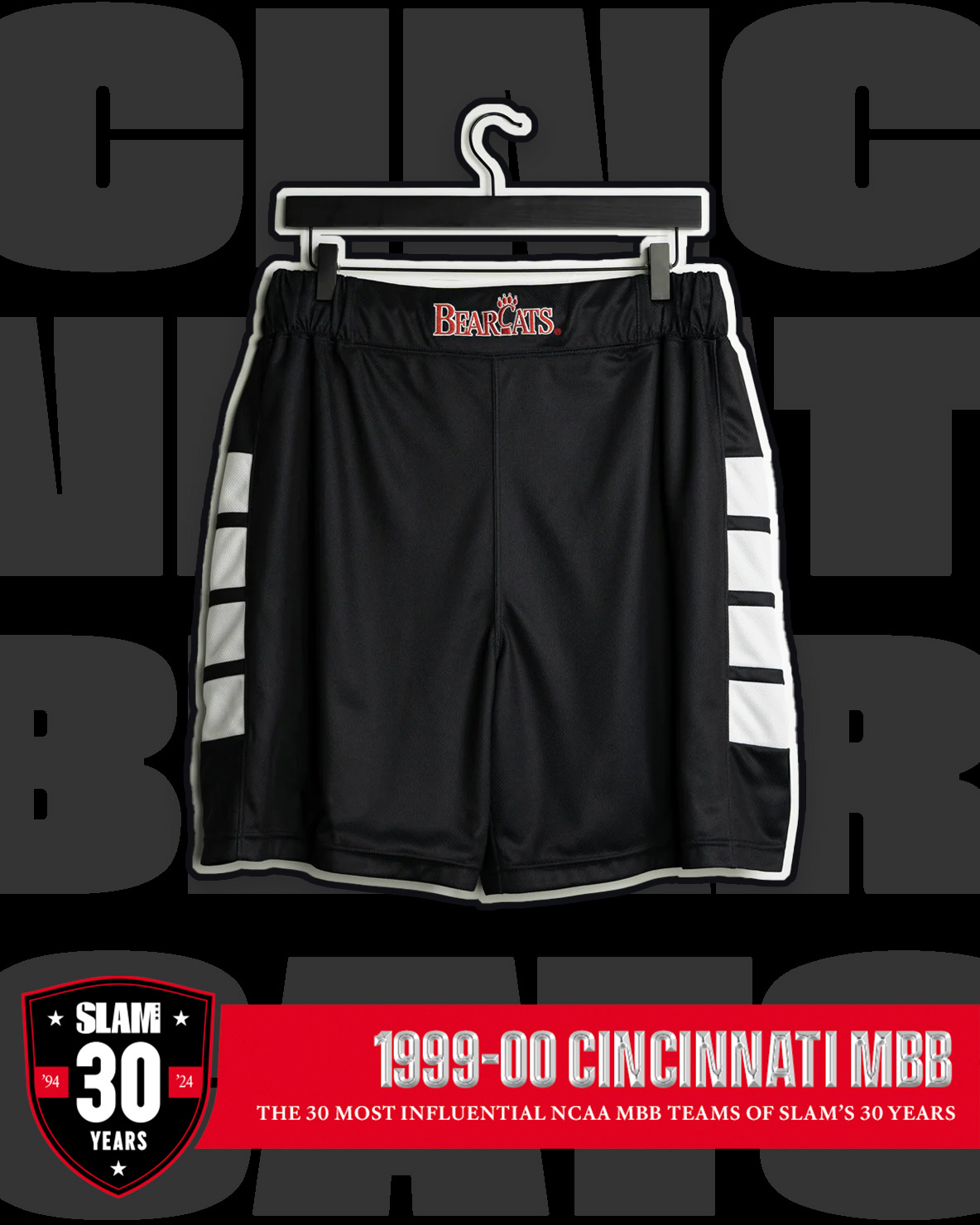
Photos via Getty Images.



